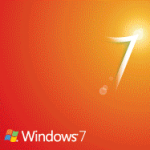For AMD, keeping it too simple may be too stupid

The "Keep It Simple, Stupid" rule works in business as well as in everyday life, primarily because it forces us to focus on the one or two basic issues we need to make the right decision. My kindergarten teacher shortened it to "KISS," perhaps in the interest of simplicity. When you're driving a car: Know where you are, know where you're going. Leader of the free world: Keep your hands clean, know what you're aiming at. Reprogramming your iPod/in-vehicle audio system interface: Pull over, let the semi pass you.
More data, please
Free Office Web Apps: Brilliant ploy or desperate move?

The problem with sleeping giants in recent years is that "terrible resolve" hasn't necessarily gotten them very far. Of course, this applies outside the information technology industry as well. But not even the Internet -- the biggest revolutionary IT technology since the personal computer -- is creditable to any one major player or allied force. Historians will note that almost every company or group to attain success through the Internet did so either 1) completely by accident, and/or 2) without any substantive plan as to what to do with that success once it attained it.
But the last great "sleeping giant" episode in the history of the IT industry was one of absolute, intentional, and steadfast resolve. The landscape of our lives and work has been shaped by this chain of events. It was triggered by WordPerfect, and the terrible resolve was manifest in Microsoft Office. I watched from very close range as, within a span of mere months, the axis powers that commanded respect and even awe -- WordPerfect, Lotus 1-2-3, dBASE, and Harvard Graphics -- deflated to mere also-ran status. Their manufacturers, in an often comical display of poor timing and miscommunication, self-destructed.
As a result today, when you ask businesses worldwide why they use Microsoft Office, the majority of responses you'll get say it's because it's the productivity suite for Windows. And when you ask those same businesses why they use Windows, the answer is because it's the operating system that runs Office.
If Microsoft sold a lifestyle, would you buy it?

In the Northern Hemisphere, Autumn is typically a time of bright colors and falling leaves. Perhaps Microsoft has moved south of the equator to Spring, because the company is poised for brand rebirth -- a reawakening of key consumer brands.
Six brands -- Bing, Xbox, Windows Live, Windows Mobile, Windows 7 and Zune -- are coming to market as new versions and/or marketing campaigns. No single brand will revitalize Microsoft's overall consumer image. But combined, these brands could revive the company's consumer brand profile. I predict that they also are Microsoft's last stand. Failure now will resign Microsoft's brand image to large businesses.
Zune dreams: Microsoft's refusal to say die

A boxing match can be a fascinating thing to watch, especially when it's between deliberately mismatched fighters who probably have no business being in the ring at the same time. But since these things are more about business than fighting, anyway, audiences are often treated to cruel spectacles of an overwhelmingly powerful athlete beating an out-of-his-league opponent to a bloody pulp.
If the poor shlub doesn't collapse in a heap or put his gloves down and head for the corner, you can always count on the ref to step in and stop the carnage. But only after the members of the audience have been satisfied that they saw what they came to see.
Why I chose Windows 7 over Snow Leopard (and you should, too)

Last week, I returned to using Windows 7 after spending the summer on a 13-inch MacBook Pro. Apple almost had me there for awhile, but I'm back where I belong and satisfied with the switch. Given that Apple released Snow Leopard a couple of weeks ago, Windows 7 officially launches October 22nd and there is plenty of geek debate about which OS is better, it's appropriate time to tell the story about how I went -- in the words of J.R.R. Tolkien -- "there and back again."
First, some background. I am a longtime Mac and Windows user. I have used Windows pretty much since its release in the early 1990s and Macs since December 1998, when I carted a Bondi Blue iMac out of a CompUSA. Based on my reading comments, many Betanews readers are religious about their platform choices; I am not. Mac OS and Windows are just tools to me. I don't dogmatically defend either platform. I'm neither Mac or Windows fanboy. My work requires using both operating systems, and for convenience one usually is primary. That said, I've flopped between platforms for more than a decade.
What is a Windows 7 upgrade, really?

In a blog post earlier this month that didn't raise any eyebrows at the time it was released, Microsoft Windows Deployment team leader Chris Hernandez posted the results of an internal company study gauging the amount of time required by different profiles of Windows Vista-based computers for an upgrade to Windows 7. According to Hernandez' numbers -- which did not surprise me in the least; in fact, at the time, I didn't think they were significant enough to highlight here in Betanews -- Hernandez' team estimated it could take as much as 20 and one-half hours to complete a Windows 7 upgrade, for an Intel Core 2 Quad Q6600-based system with 4 GB of DRAM, and a 1 TB Western Digital hard drive full of 650 GB of data, including 40 pre-installed applications. (For the record, that hardware profile is very much like the system I use for testing Web browsers.)
Hernandez' objective was to demonstrate that it takes less time to upgrade to Windows 7 than it did to upgrade from XP to Vista, usually on the order of 5%.
Why the Zune HD needs the Xbox 360

We're standing on the cusp of a new chapter in video game history: the era of microgames, where titles $10 and under take on a starring role, and attach rates (that is, games sold per console) skyrocket.
The charge is being led by Apple with its iPhone and iPod Touch, two devices without gaming as their stated purpose, both of which have found unmatched success in the downloadable gaming industry. The other video game consoles have their own "app stores," where games can be downloaded directly to the system, but none have reached the heights that the iTunes App Store has...yet.
Pixi dust: Is Palm doing enough to survive?

If you're one of those who have been waiting for a miraculous transformation at Palm, I worry you may be waiting forever. As much as I want the company to survive and thrive, to come back from a near-death experience driven by lack of compelling new products and the worst case of corporate ADHD this side of Motorola, I have a growing sick feeling in the pit of my stomach that it's just not going to happen.
This past June (ancient history in this business), I wrote about Palm's prospects as it launched its first webOS-powered smartphone, the Pre. At the time, I expressed optimism that the company had finally shaken its years-long funk to bring out a fresh, modern take on converged, wireless devices. I kept my fingers crossed that this slick new smartphone, packed full of fresh thinking, would help customers get over years of neglect and lost opportunity. Palm, after all, defined the PDA market in the late '90s, and later hit it big with one of the most successful early smartphones, the Treo. I wasn't alone in wishing it could recapture its mojo.
The wireless carrier conundrum: Perpetuating the myth of connectivity

I'd hate to be a wireless carrier. Customers don't like you, regulators are constantly sniffing around the edges of your operations and you're perpetually faced with the Hobson's Choice of investing billions in new network capability or risk falling behind other, similarly vilified competitors. In short, you can't win. And the recent spate of negative publicity surrounding the real-world experiences of customers using 3G-capable smartphones suggests this situation won't improve anytime soon.
It's their own fault
Has 'beta' lost its meaning?

About 11 years ago (please ignore the rapidly aging "10 Years" banner overhead), a very bright young man put together a hosting service for new software, and a news feed to help publicize it. I'll spare you the part where I praise my boss for his wisdom and insight and great sense of timing, although all of that's certainly true.
In 1998, the term "beta" was generally used to mean "new software;" and so "Beta News" was interpreted quite correctly to mean "new software news." Some enterprising person may be able to dig up something I published elsewhere during that time where I complained about what I perceived as the misappropriation of "beta" to simply mean "new."
It's the end of the iPod as we know it

The big news this week promises to be Apple's annual September product launch on Wednesday. Of course, the famously secretive company won't confirm anything before then, but if the rumors are to be believed, Apple is about to release another generation of refreshed iPods on a drooling world.
Which begs the question: Does the world even need a new iPod? Or, viewed another way, have the old iPods run their course? Or another, does anyone buy single-function music players anymore, or has the world moved on to multifunction devices?
Cloudy forecast? Gmail outage shouldn't cast such a chill over Web apps

Will this week's Google Mail outage frighten you out of shifting more of your computing solutions into the cloud?
On balance, it shouldn't, as no technology is perfect and failure is part of the landscape whether we keep our stuff in a data center, in a box under our desk, or on some unseen Web server on the other side of the country. But any failure of this magnitude offers up a prime opportunity to discuss -- and hopefully improve -- the weaknesses that can still bite us.
Don't drop that phone! Fragile devices threaten customer loyalty

The iPhone is a technical marvel, a full-on computer that happens to fit in your pocket. It isn't alone: The average BlackBerry is also pretty magical in its own right, as are high end phones from Nokia, HTC and a host of other vendors.
Fantastically capable as they are, don't drop yours. Don't get it wet, either. Don't stress or damage it in any way. Because if you think you can simply bring it back to the store where you got it and swap it out under warranty for a replacement unit, think again. Violate the warranty terms and you'll be buying yourself a new one.
Mac OS X Snow Leopard is coming: Yes, do upgrade!

If nothing else, the operating system market these days is infinitely entertaining. Consider the humble upgrade.
Some OS upgrades, like XP-to-Vista on a marginally capable machine, demand more up-front planning than the end result is often worth. You end up spending money and time on a machine that, while it may look prettier, runs slower and gives you more headaches than it solves. Other upgrade scenarios, like Vista-to-Windows 7, are a lot more straightforward and easier for most folks to justify.
Windows 7: Obviously I've struck a nerve

I guess I stirred up quite the beehive of activity with my last column, Windows 7 is coming: Don't upgrade. Before I continue, I wanted to share a few final thoughts on what's clearly been the most controversial piece of writing I've published in a while.
First, I'm a big boy, and I've got a thick skin. If you didn't agree with what I had to say (and many of you didn't) I promise you I didn't skulk back to my office with a sniffle in my nose and a tear in my eye after reading the comments. Pro or con, agree or disagree, if I get readers to think critically about a given issue, I've accomplished my goal. I don't particularly enjoy fanboys agreeing with my every word, so don't expect my writing to reflect some kind of middle-of-the-road festival of milquetoast mutual admiration.
Recent Headlines
Most Commented Stories
BetaNews, your source for breaking tech news, reviews, and in-depth reporting since 1998.
© 1998-2025 BetaNews, Inc. All Rights Reserved. About Us - Privacy Policy - Cookie Policy - Sitemap.